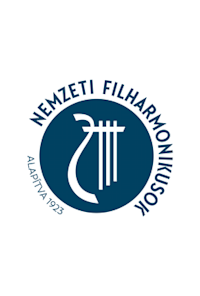Milhaud Ani Maamin – Cantata And Bernstein Symphony No. 3 (Kaddish)
Partaja
Hungarian National Philharmonic (2018)Informații de la organizația de arte (verificată de Operabase)
În rolurile principale:
21 Iunie 2018 (1 spectacole)
Vizitați site-ul webMilhaud Ani Maamin – Cantata And Bernstein Symphony No. 3 (Kaddish) by Bernstein, Milhaud, De la (2018/2018), Dirijor Zsolt Hamar, Dohány Street Synagogue, Budapest, Hungary
Selectați LucruKaddish (Symphony No. 3 'Kaddish'), Bernstein
Producător
Conductor
Distribuție
Speaker
Ansamblu
Orchestră
Alte
TCThe Children Choir Of The Zoltán Kodály Hungarian Choral School
Program
2
Milhaud Ani Maamin – Cantata And Bernstein Symphony No. 3 (Kaddish)
Aflați mai multe despre munca muzicală
